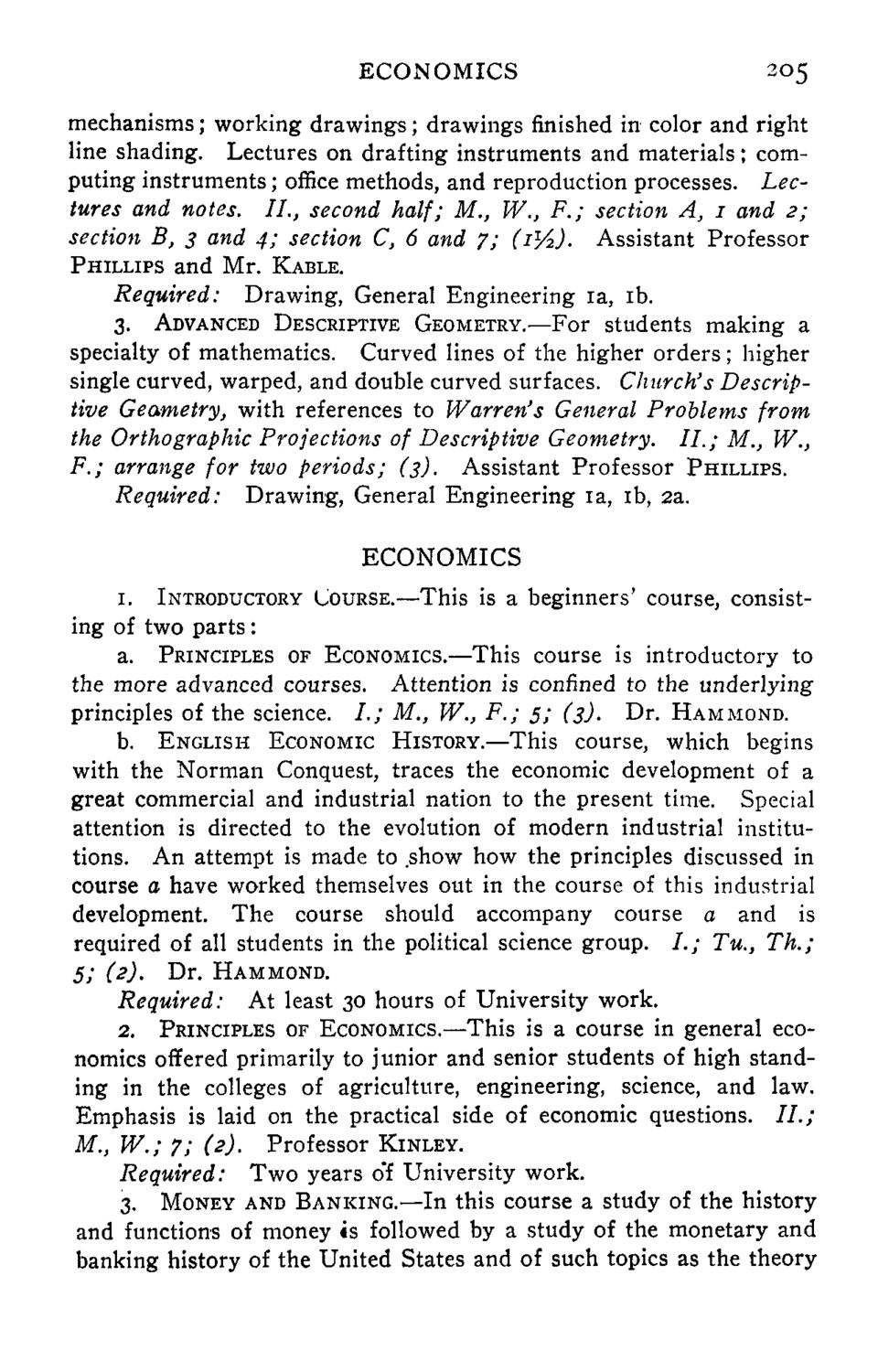Caption: Course Catalog - 1899-1900
This is a reduced-resolution page image for fast online browsing.

EXTRACTED TEXT FROM PAGE:
ECONOMICS 305 mechanisms; working drawings; drawings finished in color and right line shading. Lectures on drafting instruments and materials; computing instruments; office methods, and reproduction processes. Lectures and notes. II., second half; M., W., F.; section A, 1 and 2; section B, 3 and 4; section C, 6 and 7; (ilA). Assistant Professor PHILLIPS and Mr. KABLE. Required: 3. Drawing, General Engineering ia, ib. ADVANCED DESCRIPTIVE GEOMETRY.—For students making a specialty of mathematics. Curved lines of the higher orders; higher single curved, warped, and double curved surfaces. Church's Descriptive Geametry, with references to Warren's General Problems from the Orthographic Projections of Descriptive Geometry. II.; M., IV., F.; arrange for two periods; (3). Assistant Professor PHILLIPS. Required: Drawing, General Engineering ia, ib, 2a. ECONOMICS 1. a. INTRODUCTORY COURSE.—This is a beginners' course, consistPRINCIPLES OF ECONOMICS.—This course is introductory to ing of two parts: the more advanced courses. Attention is confined to the underlying principles of the science. / . ; M., W., F.; 5; (3). Dr. HAMMOND. b. ENGLISH ECONOMIC HISTORY.—This course, which begins with the Norman Conquest, traces the economic development of a great commercial and industrial nation to the present time. Special attention is directed to the evolution of modern industrial institutions. An attempt is made to show how the principles discussed in course a have worked themselves out in the course of this industrial development. The course should accompany course a and is required of all students in the political science group. / . ; Tu., Th.; 5; (2). 2. Dr. HAMMOND. Required: At least 30 hours of University work. PRINCIPLES or ECONOMICS.—This is a course in general eco- nomics offered primarily to junior and senior students of high standing in the colleges of agriculture, engineering, science, and law. Emphasis is laid on the practical side of economic questions. II.; M., W.; 7; (2). Professor KINLEY. Required: Two years o'f University work. 3. MONEY AND BANKING.'—In this course a study of the history and functions of money is followed by a study of the monetary and banking history of the United States and of such topics as the theory
|